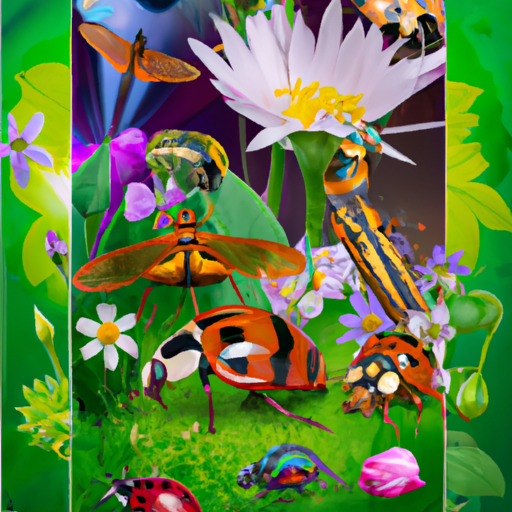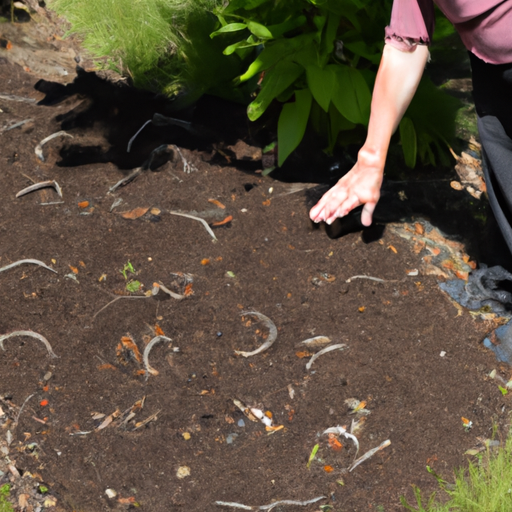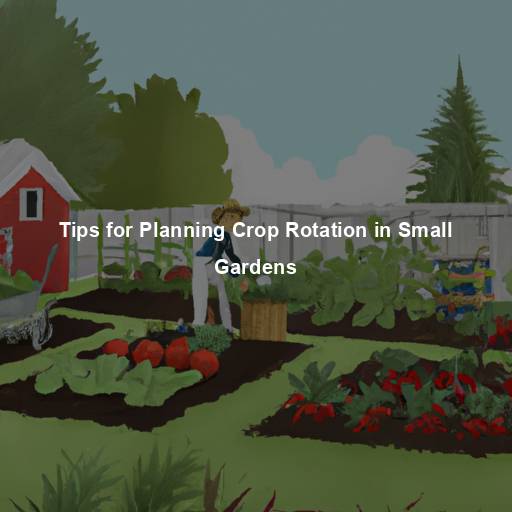As Master Gardeners, we all know that a healthy garden is the result of careful planning and maintenance. One important aspect of maintaining a thriving garden is attracting beneficial insects to your space.
These insects can help control harmful pests, pollinate flowers, and improve soil health. Attracting beneficial insects requires some strategic gardening techniques such as planting specific plants for their nectar or using companion planting to create habitats for them.
While it may take some extra effort initially, the benefits of having these helpful critters in your garden far outweigh any additional work. So let’s explore why inviting these tiny superheroes into your outdoor space is worth the effort!
Controlling Harmful Pests
You might be thinking that natural pest control is too difficult or time-consuming, but let me tell you: attracting beneficial insects to your garden is worth it.
By planting insect-friendly plants and providing habitats for these helpful critters, you can avoid harsh chemicals and still keep harmful pests at bay.
Plus, beneficial insects like ladybugs, lacewings, and praying mantises are a joy to watch as they work their magic in your garden.
So don’t give up on natural pest control just yet – try attracting beneficial insects instead!
Enhancing Pollination
Now that we’ve covered how to control harmful pests, let’s move on to enhancing pollination in your garden.
One of the best ways to do this is by attracting beneficial insects like bees, butterflies, and ladybugs. These insects not only help with pollination but also act as natural pest controllers.
By providing a diverse flora in your garden, you’ll attract a variety of these helpful bugs while also increasing yield from your plants. For example, studies have shown that honeybees alone can increase fruit set by up to 30%!
So why not create an environment that supports both the beauty and productivity of your garden? Remember, it’s all about working with nature rather than against it.
Boosting Soil Health
As the saying goes, ‘You reap what you sow.’ This is especially true when it comes to soil health. If you want a bountiful garden, then you need to take care of your soil.
One way to do this is through compost preparation. By creating nutrient-rich compost from organic materials like vegetable scraps and yard waste, you can improve the quality of your soil without relying on harmful chemicals.
Another way to boost soil health is through companion planting. Certain plants have natural abilities to ward off pests or attract beneficial insects that can help maintain healthy soil conditions. For example, marigolds are known to repel nematodes while attracting bees and butterflies.
By incorporating these methods into your gardening routine, you will not only enhance the overall health of your garden but also promote a more sustainable environment for future generations.
It may require some extra effort in the beginning, but the benefits will be well worth it in terms of increased yield and reduced reliance on synthetic fertilizers and pesticides.
Remember that gardening is a journey, not a destination, so keep learning and experimenting with different techniques to find what works best for your unique situation.
Using Strategic Gardening Techniques
Now that we have discussed boosting soil health, let’s explore how to use strategic gardening techniques to attract beneficial insects to our gardens.
Companion planting is a great way to do this. Certain plants can act as natural insect repellents and attract predators of harmful pests. For example, marigolds are known for their ability to repel nematodes and other harmful insects while attracting ladybugs, which feed on aphids.
Another technique is using natural insecticides like neem oil or diatomaceous earth. These methods target only harmful insects and leave the beneficial ones unharmed. This ensures a healthy balance in your garden ecosystem.
By incorporating these techniques into our gardening practices, we can create an environment where beneficial insects thrive, leading to healthier plants and less need for harsh chemical pesticides. Plus, it’s just more enjoyable seeing butterflies fluttering around your garden instead of having to constantly battle with pesky pests.
Remember, sustainable gardening takes time and effort but the rewards are worth it!
Improving Overall Garden Health
Improving overall garden health is essential for maintaining a thriving and bountiful garden.
Companion planting can help improve soil fertility, ward off pests, and attract beneficial insects to your garden.
By strategically placing plants together that complement each other’s growth patterns and nutrient needs, you can create a natural ecosystem in your garden that supports the health of all plants involved.
Additionally, practicing natural pest management techniques such as using companion plants or introducing beneficial insects like ladybugs or lacewings can significantly reduce the need for harmful pesticides while also promoting biodiversity in your garden.
Incorporating these practices into your gardening routine not only improves the health of your plants but also contributes to a healthier environment overall.
Frequently Asked Questions
What Are Some Common Beneficial Insects And How Can I Attract Them To My Garden?
To promote natural pest control in your garden, companion planting is a great way to attract beneficial insects.
Some common beneficial insects include ladybugs, lacewings, and praying mantises. Ladybugs are known for their appetite for aphids, while lacewings prey on mites and other small insects. Praying mantises also eat a variety of pests like caterpillars and flies.
To lure these helpful critters to your garden, try planting flowers such as dill or parsley which attract ladybugs, or yarrow and sweet alyssum which draw in lacewings. Providing habitats such as piles of leaves or rocks can also encourage praying mantises to take up residence in your garden.
By incorporating companion planting strategies and attracting beneficial insects to your garden, you can create a thriving ecosystem that supports natural pest control and promotes healthy plant growth without the use of harmful chemicals.
Can Beneficial Insects Be Harmful To Humans Or Pets?
When it comes to attracting beneficial insects to your garden, one may wonder if there are any safety concerns for humans or pets.
While these bugs play a crucial role in maintaining the health of our gardens, it’s important to take precautions when encouraging their presence.
Fortunately, most beneficial insects pose no threat to people or animals and can actually benefit us by reducing the need for harmful pesticides.
However, some species like wasps and bees should be approached with caution as they can sting if provoked.
Overall, the Benefits of Beneficial Insects for Garden Ecosystems far outweigh any potential safety risks, but it’s always best to exercise common sense and prioritize safety when working with these helpful critters.
How Can I Tell The Difference Between Beneficial And Harmful Insects In My Garden?
Identifying beneficial insects in your garden is crucial for successful integrated pest management strategies.
To tell the difference between beneficial and harmful insects, look at their physical characteristics and behavior patterns.
Beneficial insects tend to have a specific purpose, such as pollination or controlling other pests.
They also often move slower than harmful insects and may be less aggressive when disturbed.
By identifying these helpful creatures, you can protect them from harm while promoting a healthy ecosystem in your garden.
As a Master Gardener, I highly recommend taking the time to learn about the various beneficial insects that could be living right under your nose!
Are There Any Plants That Repel Beneficial Insects?
While it’s important to attract beneficial insects to your garden for natural pest control, you may also want to consider companion plantings that repel harmful bugs.
However, when choosing these plants, it’s essential to ensure they don’t deter the good guys too.
Some plants like marigolds and garlic can both repel pests while still attracting pollinators and predators.
So, before planting anything new in your space, research which companions work best with each other and avoid any that could harm the very creatures you’re trying to bring in.
Can I Use Pesticides And Still Attract Beneficial Insects To My Garden?
Can you use pesticides and still attract beneficial insects to your garden?
As a Master Gardener, I recommend using natural pesticides as they are less harmful to the ecosystem of your garden.
It’s important to understand that every living organism in your garden has a role to play, including the pests.
Beneficial insects such as ladybugs and lacewings help control pest populations naturally, reducing the need for chemical intervention.
By creating a balanced environment with diverse plant species and providing shelter for these helpful bugs, you can reduce pesticide use while promoting a healthy ecosystem.
Remember, understanding the delicate balance of nature is key when it comes to maintaining a thriving garden.
Conclusion
In conclusion, attracting beneficial insects to your garden can have a multitude of benefits. Not only do they help control harmful pests, but they also aid in pollination and enhance the overall health of your plants.
By planting certain flowers and herbs such as dill, marigold, and lavender, you can attract ladybugs, lacewings, and other helpful insects.
Before using pesticides or insecticides that may harm these beneficial bugs, consider trying natural methods such as companion planting or introducing predator insects.
Remember the saying ‘you catch more flies with honey than vinegar.’ In other words, if you want to attract good things to your garden, it’s best to use gentle methods rather than harsh chemicals.
As a Master Gardener myself, I highly recommend taking care of our environment by promoting natural pest control through the attraction of beneficial insects.






